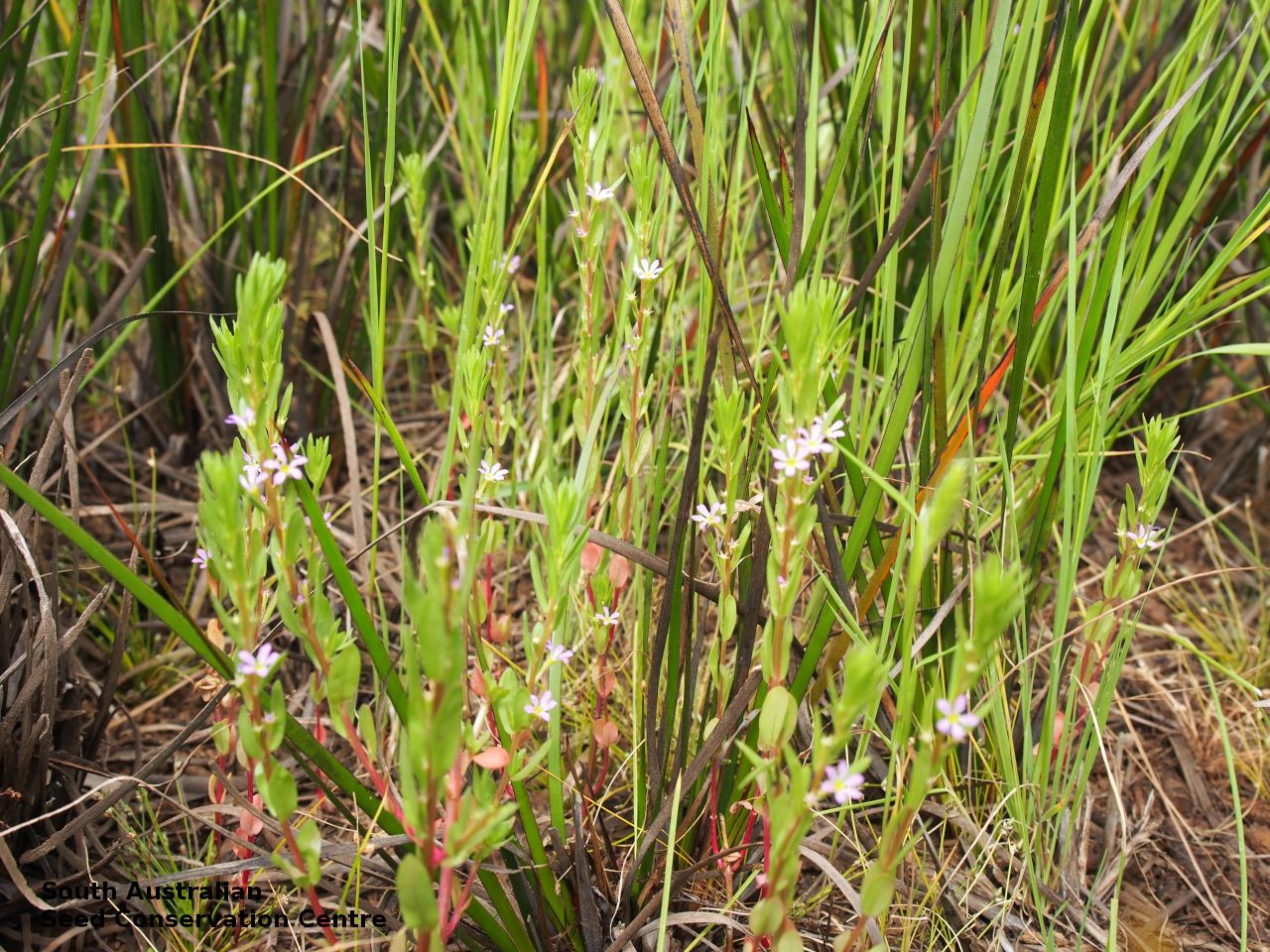
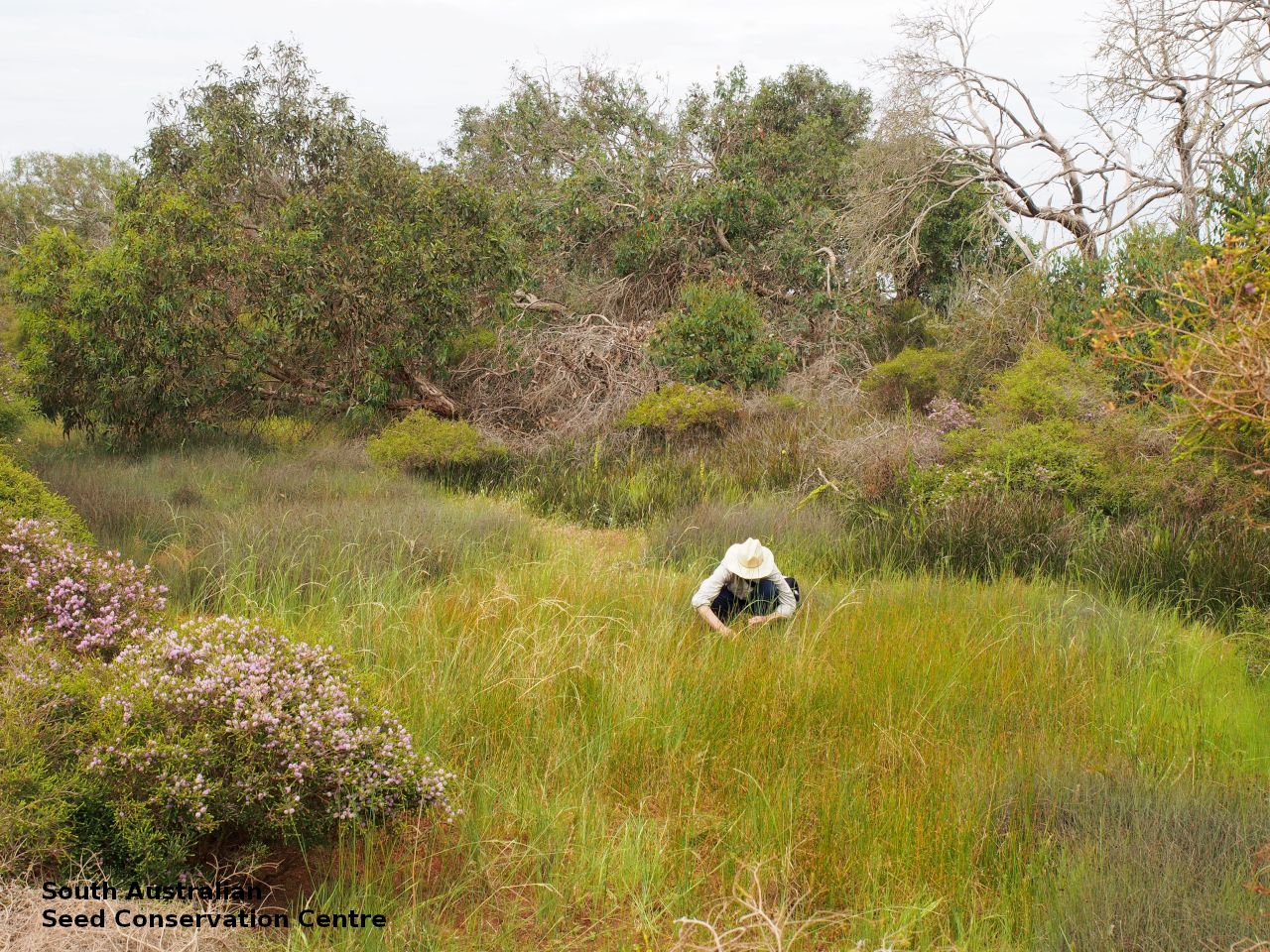
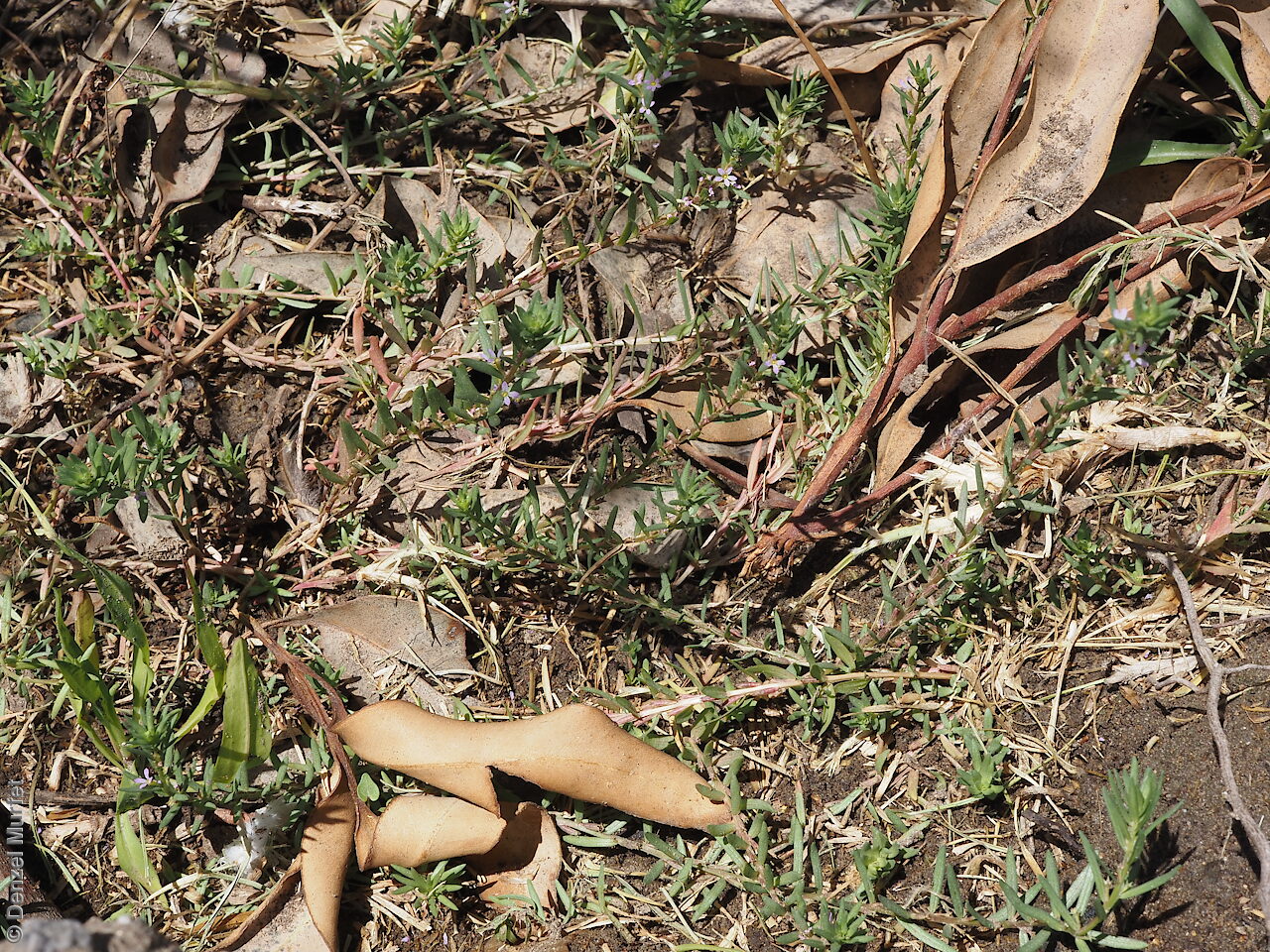
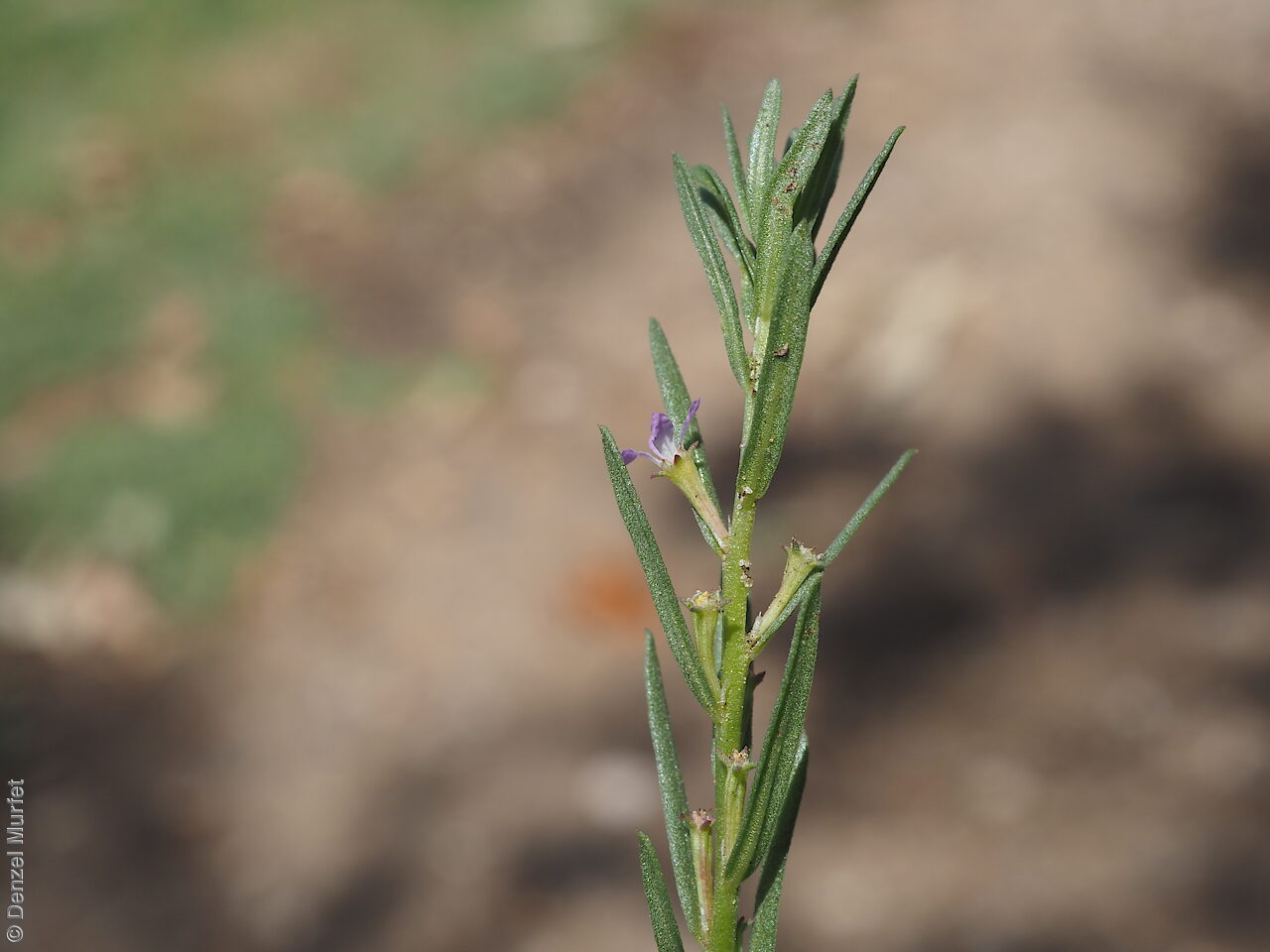
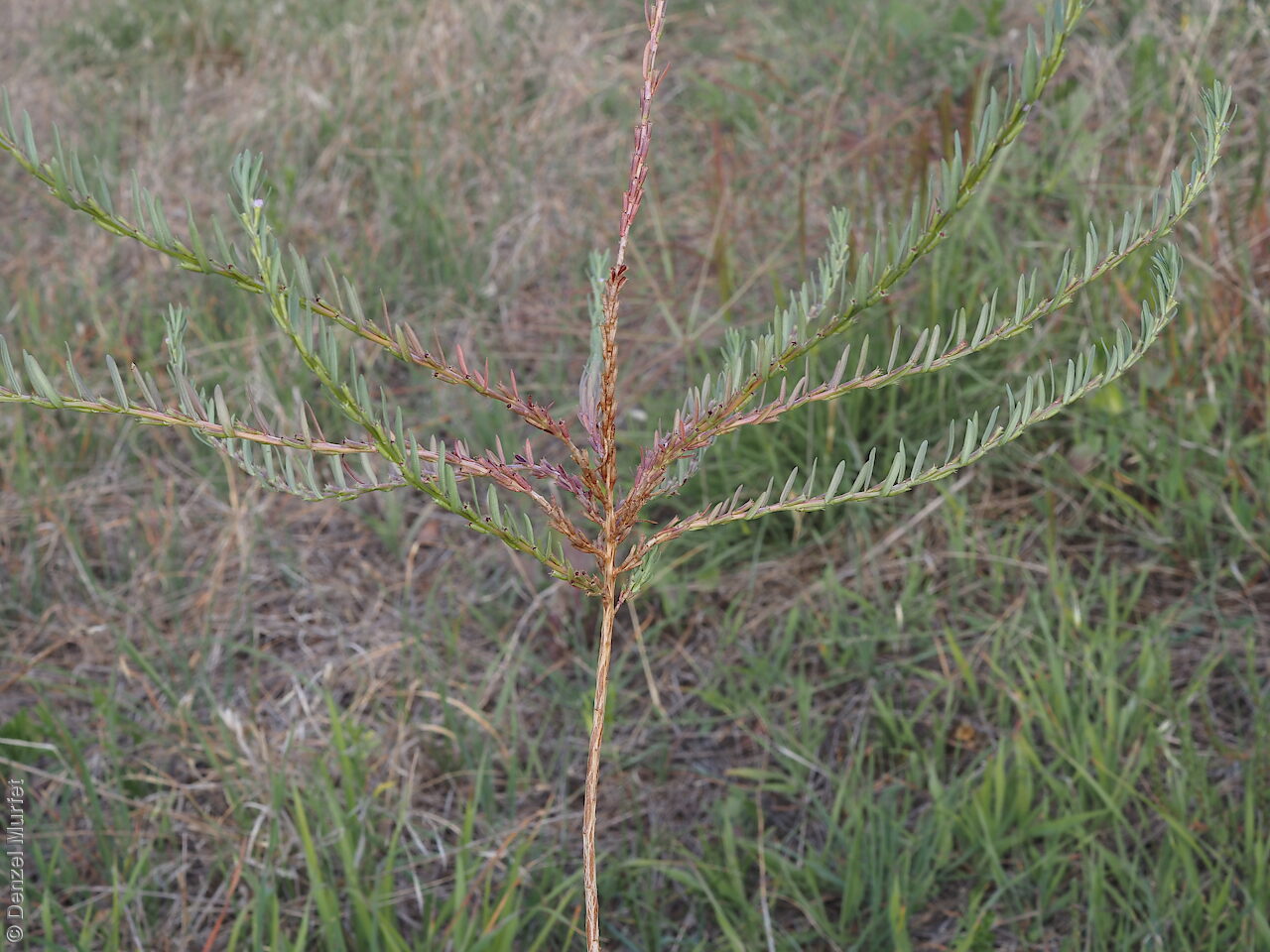
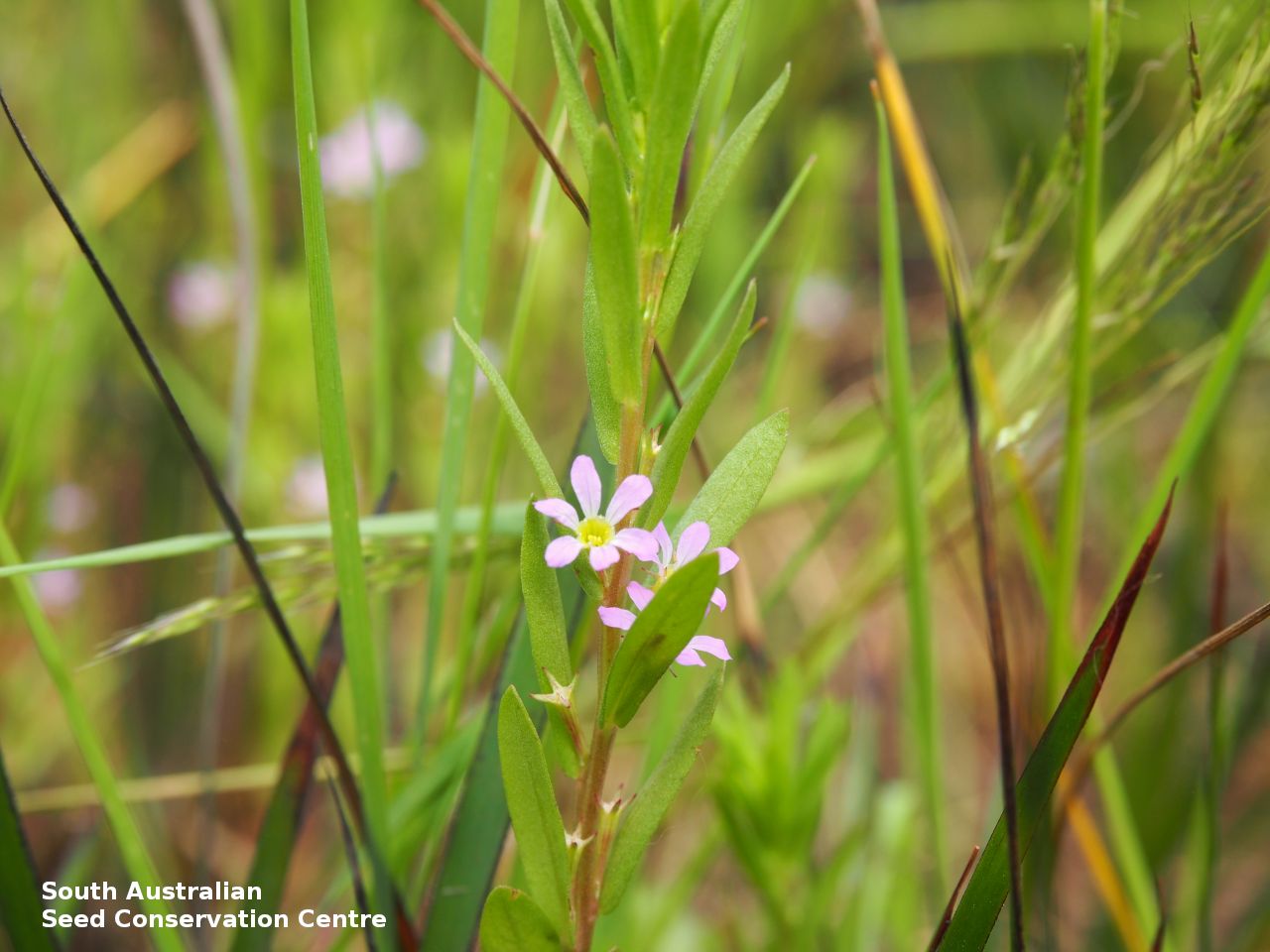
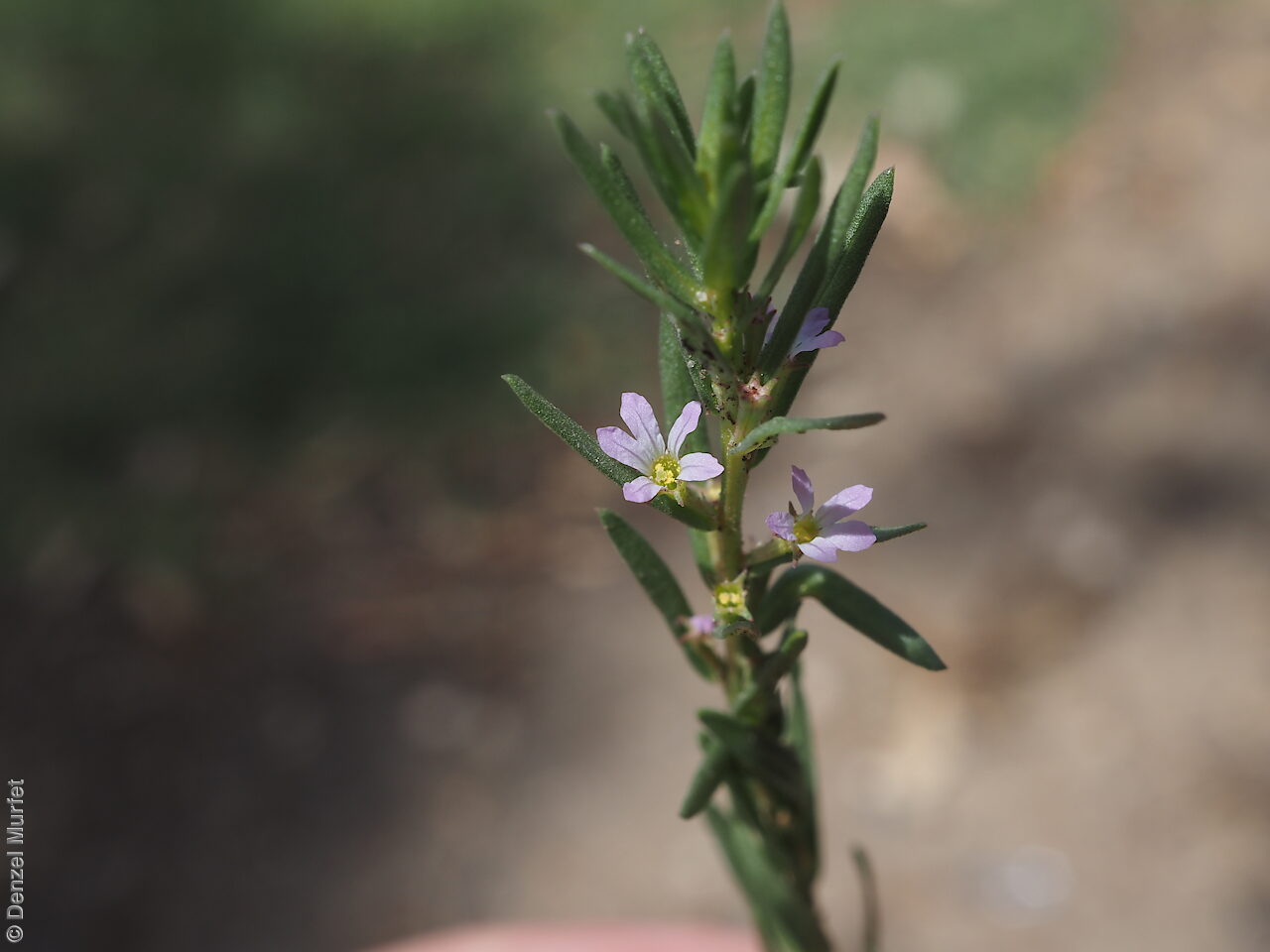
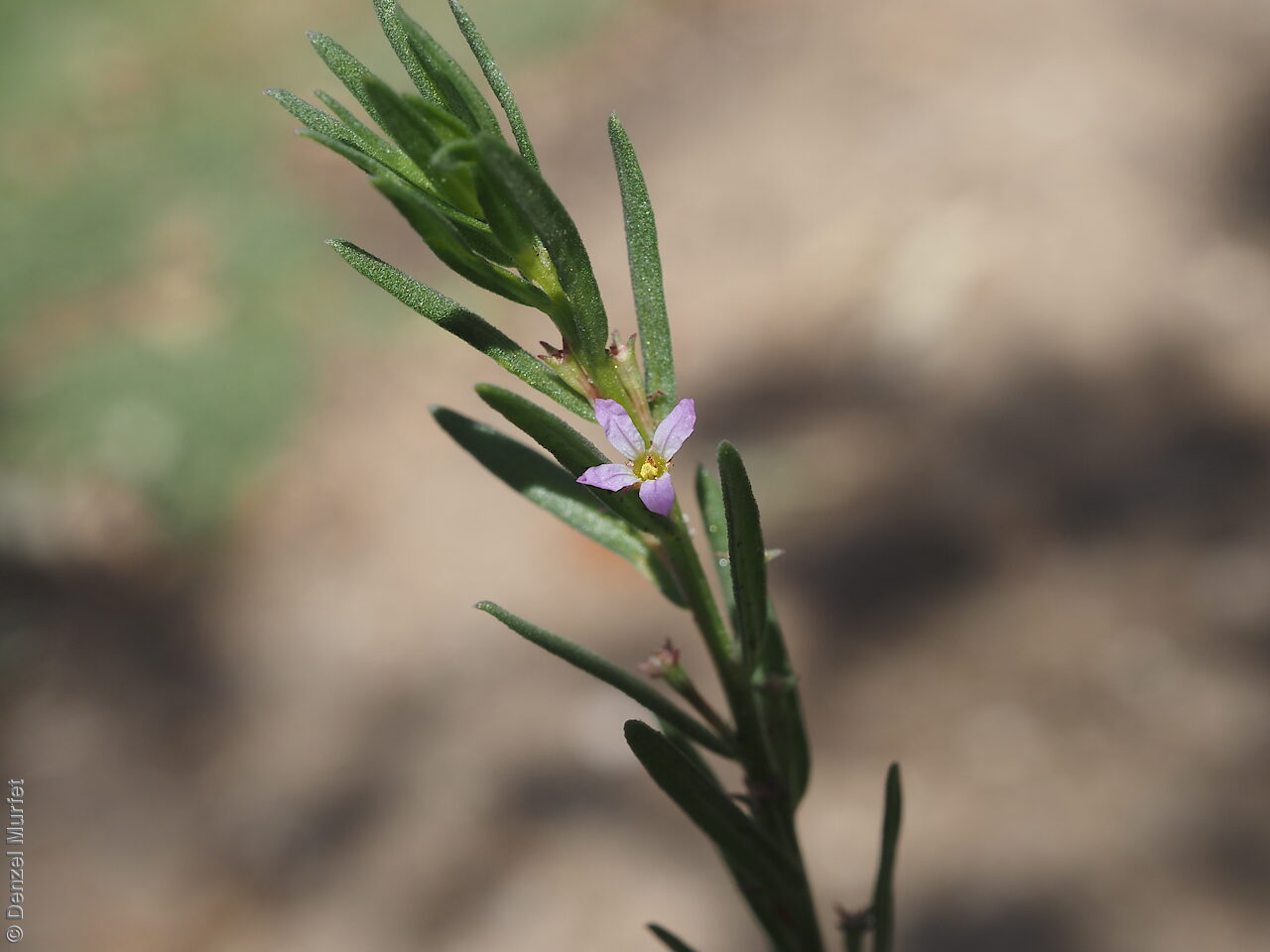
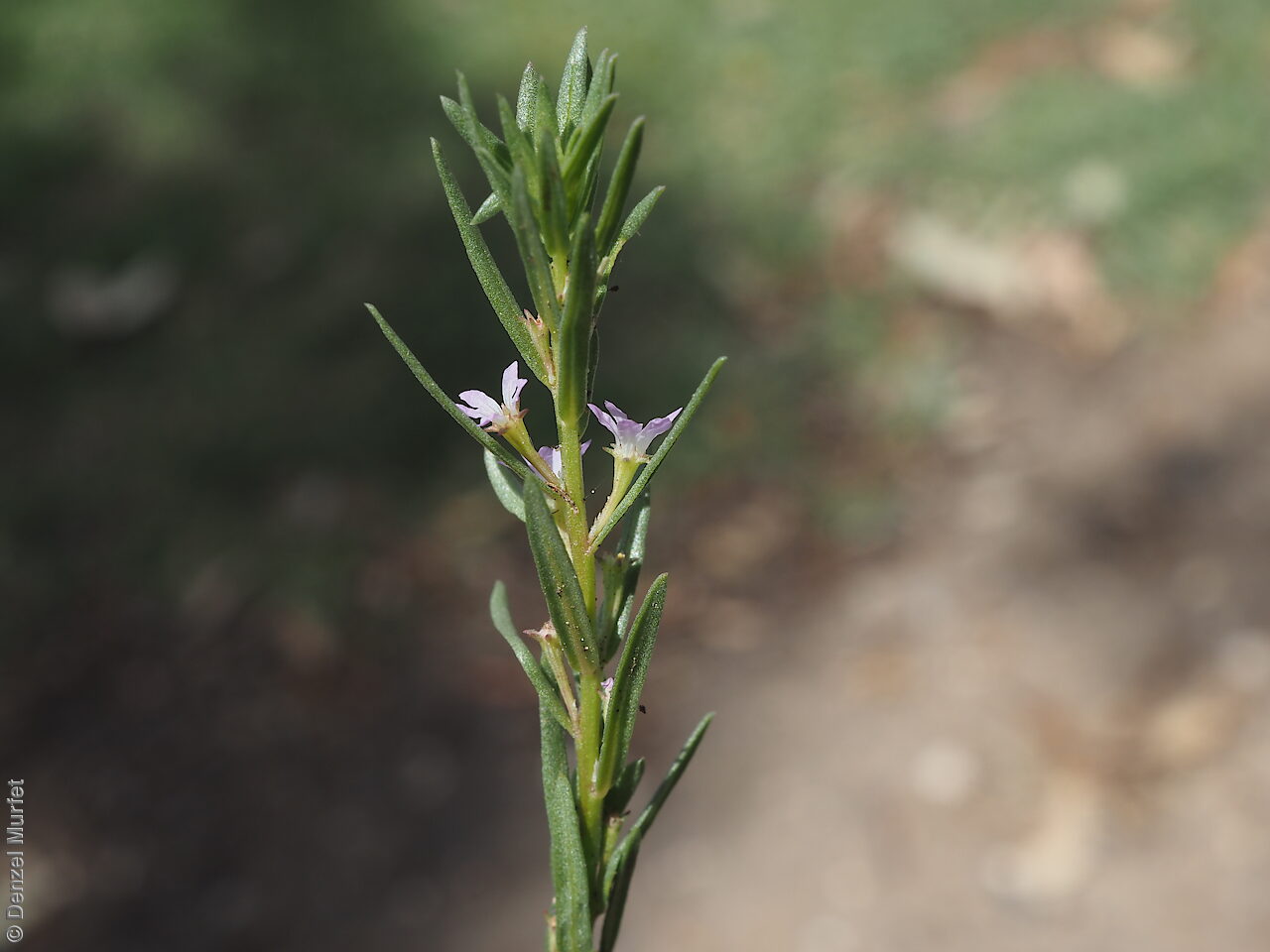
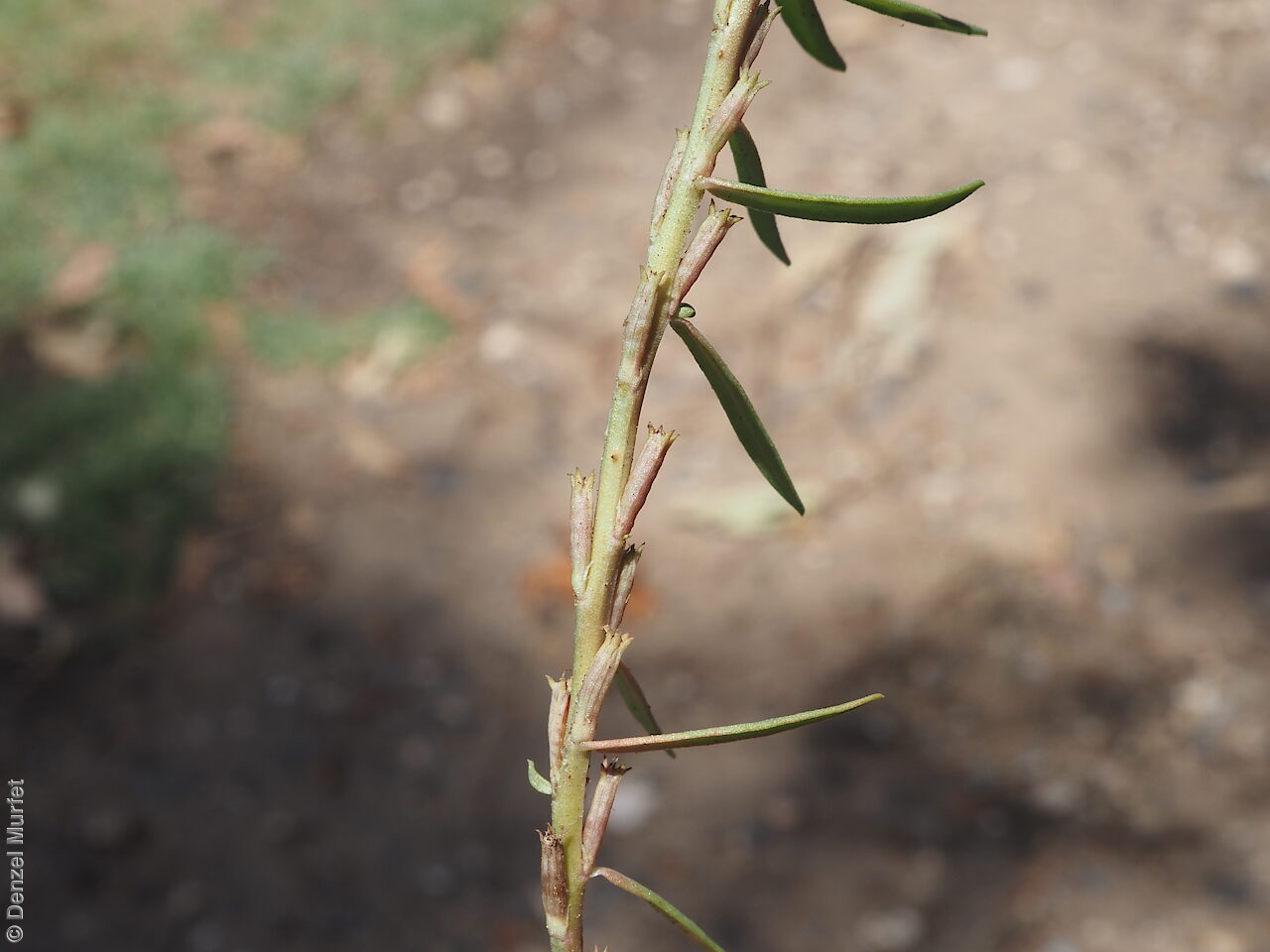

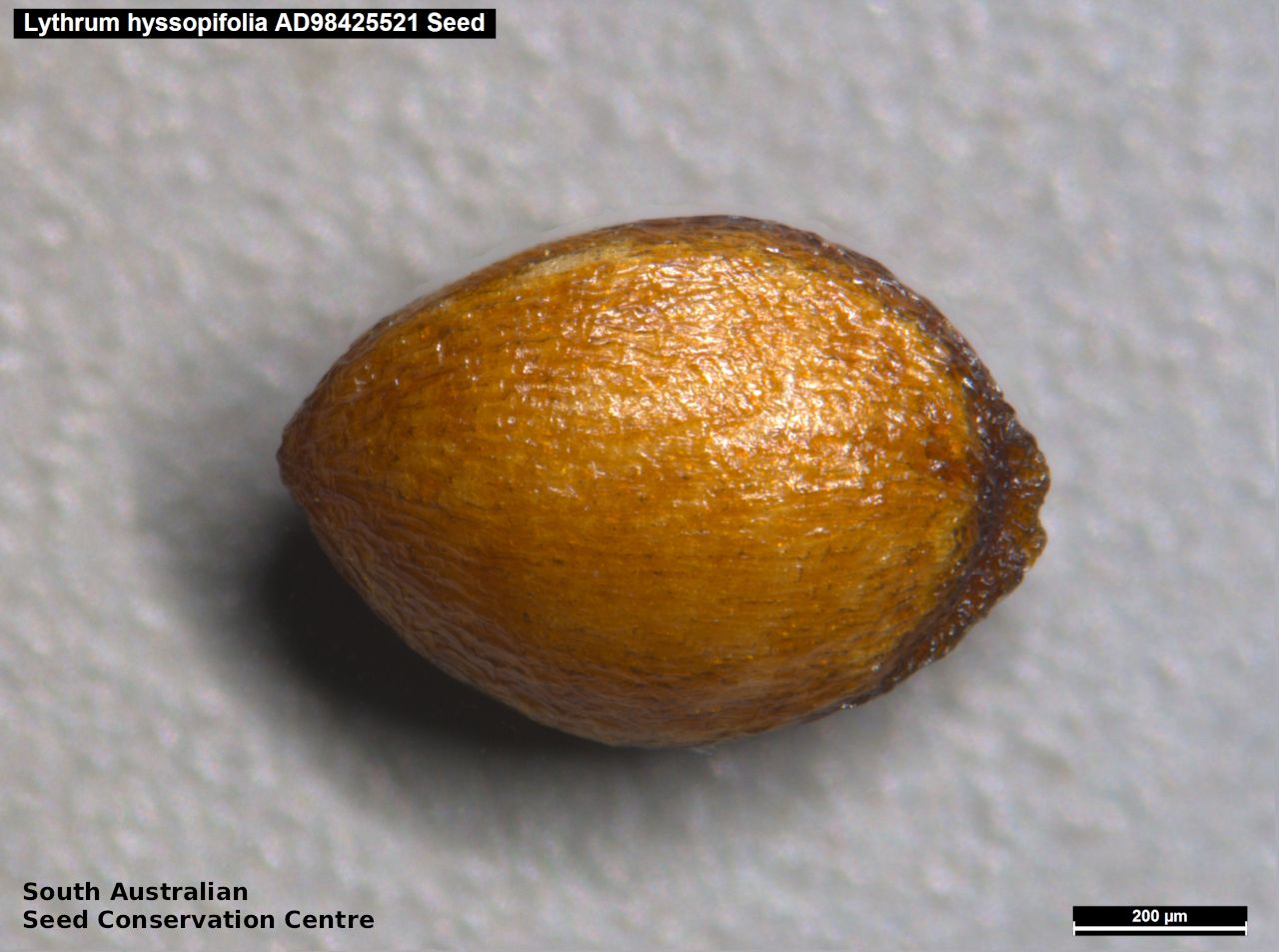
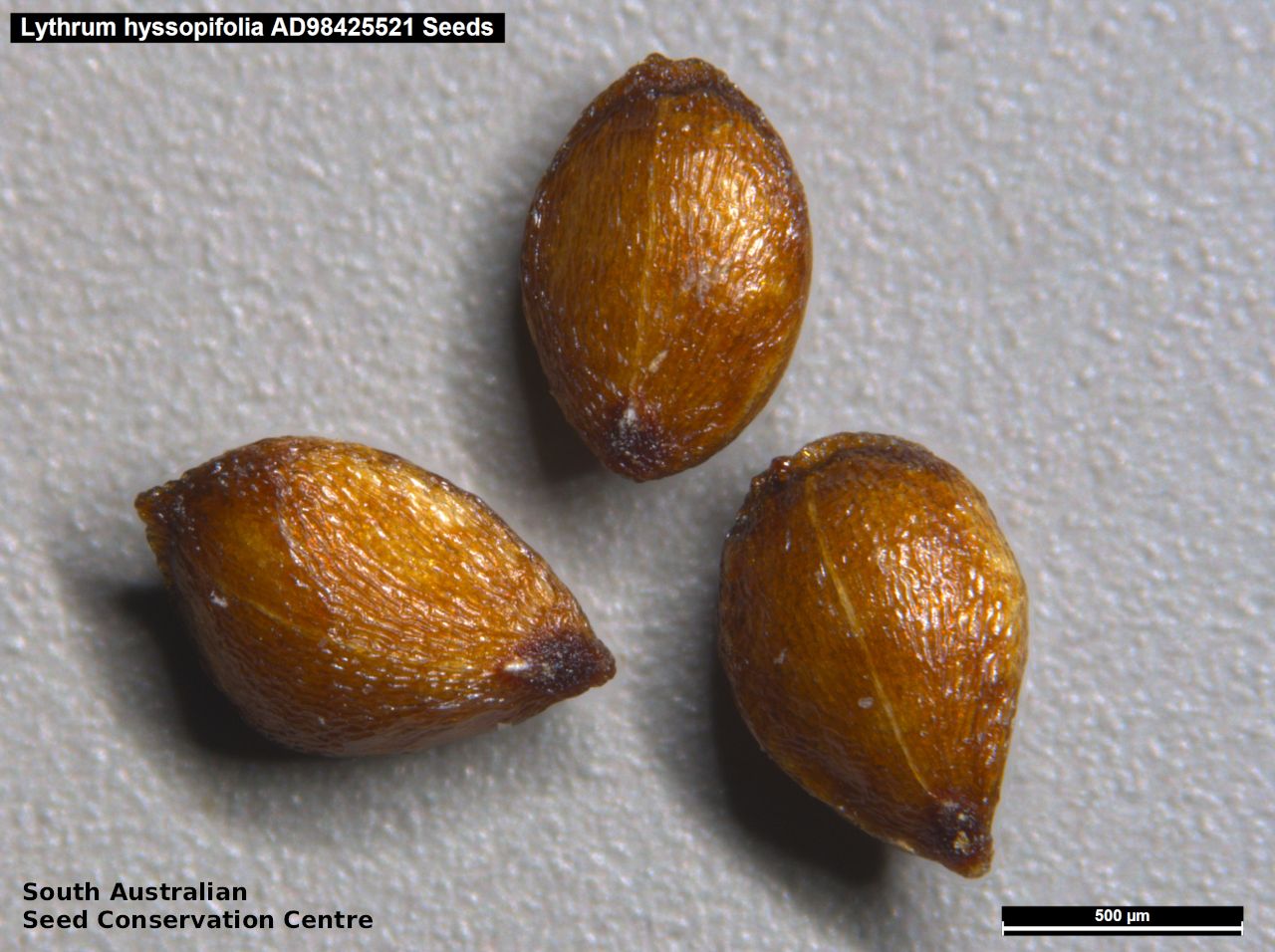

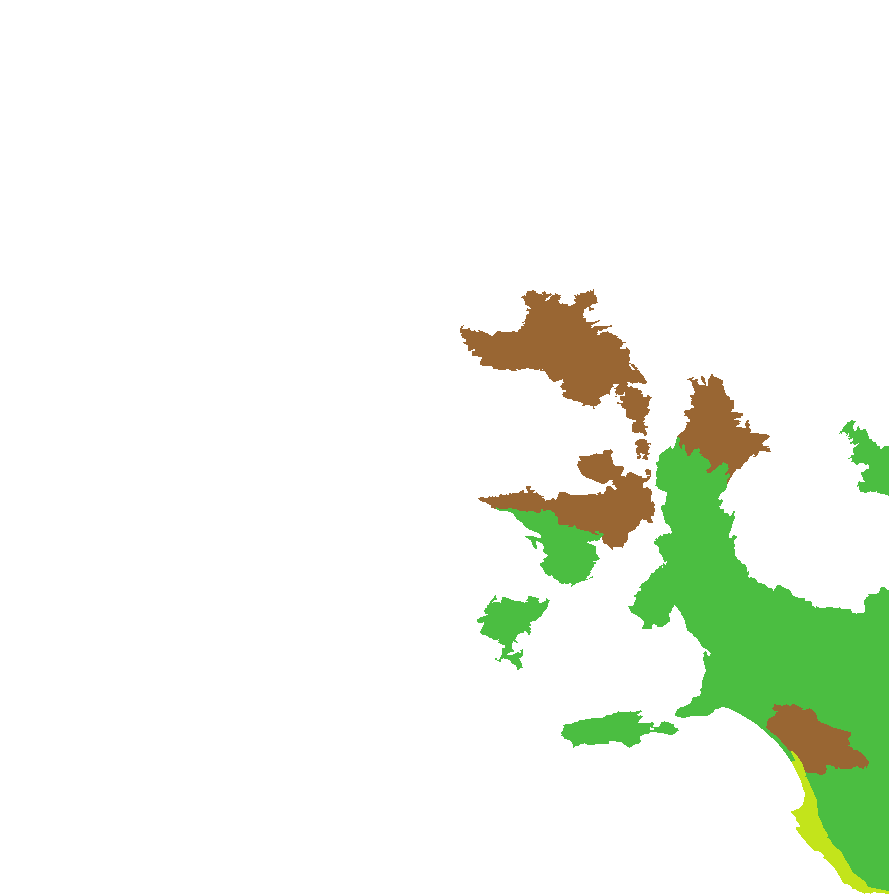
Botanical art
Common names
Hyssop Loosestrife
Lesser Loosestrife
Small Loosestrife
Etymology
Lythrum an ancient name used by Dioscorides and is from the Greek 'lythron' meaning black blood; referring to the purple colour of the flowers of some species, but it has been suggested that it refers to some styptic property of the plant. Hyssopifolia means having leaves like the genus Hyssopus (which is from the old Hebrew 'esob' meaning holy herb, a herb referred to in the scriptures as a symbol of purification and was used in the ritual cleansing of churches and in religious painting to symbolize humility.
Distribution and status
Found in the southern part of South Australia, growing in moist habitat or near water. Also found in Queensland, New South Wales, Victoria and Tasmania (and southern Europe). Introduced to Western Australia. Native. Common in South Australia. Common in the other states.
Herbarium regions: Gairdner-Torrens, Flinders Ranges, Eastern, Eyre Peninsula, Northern Lofty, Murray, Yorke Peninsula, Southern Lofty, Kangaroo Island, South Eastern, Green Adelaide
AVH map: SA distribution map (external link)
Plant description
Decumbent to ascending annual herb to 50 cm high, glabrous with ribbed stems. Leaves mostly alternating up the stems, some almost opposite, linear to oblong to 40 mm long and 10 mm wide, flat, hairless. Inflorescence solitary in upper leaf axils with small (less than 3mm across) tubular pink, blue or purple flowers. Flowering between October and February. Fruits are small brown oblong capsule opening by 2–4 valves. Seed embryo type is spathulate.
Seed collection and propagation
Collect seeds between December and April. Collect mature capsules, those that are turning brown in colour and contain brown seeds. Whole stem containing many clusters of fruit can be collected. Place the capsules in a tray and leave to dry for two weeks. Then rub the capsules gently by hand to dislodge the seeds. Use a sieve to separate the unwanted material. Be very careful as the seeds are very small. Store the seeds with a desiccant such as dried silica beads or dry rice, in an air tight container in a cool and dry place. Seeds are non-dormant, viable seed should germinate readily.